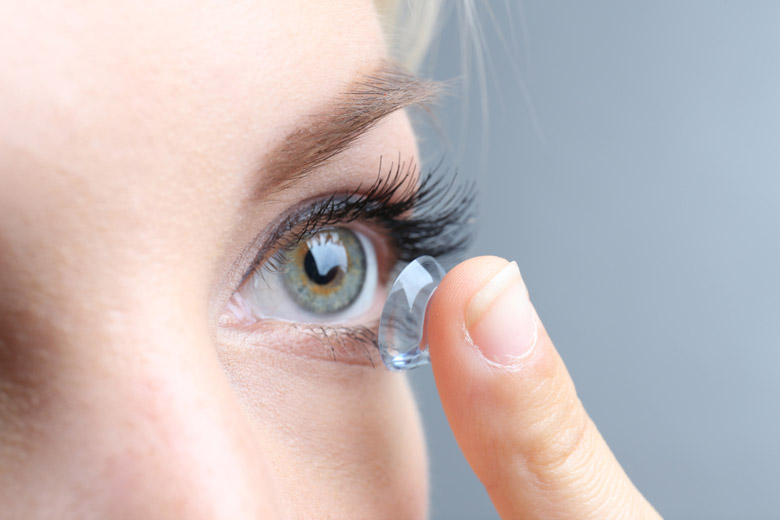Glasses have been a part of lives of many people. As a matter of fact, the Vision Council of America (VCA) said that there are estimated 64 percent of adults wear eyeglasses; 75 percent need and utilize some kind of tool to correct the vision, and about 11 percent wear contact lenses, either exclusively, or with glasses. As you can see, people who use eye correction utility tools are over the roof and it’s quite evident.

But have you ever experienced sleeping with your glasses on? How about sleeping with eye contacts or contact lenses? Have you ever thought of it being bad for your eyes or for your vision?
Read: Do You Really Need to Replace Your Kitchen Sponge?
Is sleeping with eye contacts fine?
This is the most common question thrown around in accordance to contact lenses. To give you a concise and an honest answer, it’s not safe and good in any way possible. Although no serious damage was caused by this in reports and experiences of people, do not be confident and think that it’s okay to regularly sleep on it.
A number of risks and possibilities have been found but are not that major. Even if that is the case, it could possibly result to negative outcomes which can progress and become worse in the long run—which can have great health consequences that can affect both your daily routines and your overall lives.
What risks are involved in overusing contact lenses or using it for longer periods of time?
A handful of eye experts strongly recommend that wearing eye contacts overnight are riskier than risky. Inna Ozerov, M.D., an Opthalmologist in South Florida, says that she experienced treating patients with the worst and possibly the most extravagant infections of the cornea.
Read: Sleep Deprivation Warning Signs Your Body Might be Telling You
As a cornea specialist, some of the worst corneal infections I have treated were directly related to poor contact lens hygiene habits.”
All About Vision, a website dedicated to eye care, said that certain eye contacts were approved by the FDA for overnight wear in the year 1981. However, in the next two (2) weeks, it was tested of wearing without it being removed. Afterwards, following the approval, selected eye contacts were approved by the FDA for up to a total of thirty (30) days of wearing continuously.
Read: Different Tips to Save Your Scratched Eye Glasses
Researchers and experts were able to find that a big chunk of eye infections were caused by people sleeping with eye contacts. In order for people not to have a difficult time remembering it, the FDA decreased the total number of wear days to just seven (7) days.
Central corneal ulcer can possibly happen
Dr. Ozerov said that a specific condition can swiftly develop and can allow the person wearing it to have drastic negative consequences.
A central corneal ulcer can progress fairly quickly over 24 hours and can have potentially devastating consequences on a person’s vision. The more virulent type of organisms that invade the cornea thrive in a dark, moist, low oxygen tension environment. These are precisely the conditions that occur on the ocular surface when we sleep. The lens may allow micro-organisms to adhere to the lens, therefore increasing the likelihood of infection.”
Other eye conditions people can get
In addition to corneal ulcers, there are other risks and conditions that may develop because of wearing contact lenses for longer periods of time. The National Sleep Foundation said that oxygen not being able to reach cornea in a 24-hour time span can incur damaging risks that can keep you from being able to wear contact lenses in your whole life.
Red eye is one of the most notable effects this can have in the long-run. Wearing or sleeping with eye contacts can damage the physical aspect of your eye overall.
Read: Do You Drool While You Sleep? It’s Actually a Good Sign and This is the Reason Why
Eye infections can also occur if you forget to remove eye contacts. This can be dangerous especially if your eyes are sensitive.
Last but definitely not the least would be growths on the eyelids. Leaving your contact lenses while you sleep can create some formation or growth on the eyelids.
In conclusion, it’s not recommendable and normal to sleep with eye contacts because although it does not impose dangerous health risks, it can have negative effects that could affect your health if seen in a bigger picture.
